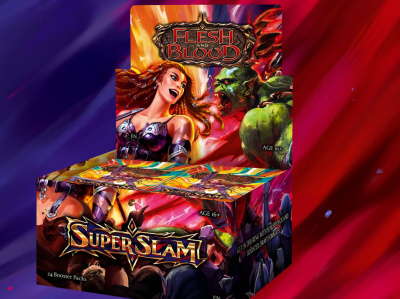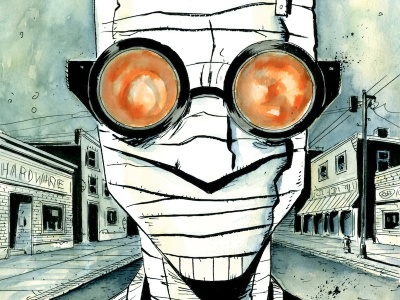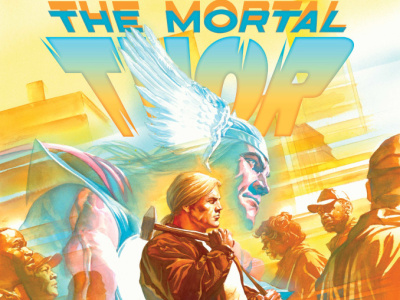We recently spent some time with Marvel publisher Dan Buckley for our annual discussion of the state of the comics business and Marvel's place in it. In Part 4, we talk about the Civil War delays and the challenges and opportunities in 2007.
One of the most controversial Marvel issues in the past six months has been the delays on some of the Civil War books. On normal books people would have probably said the delays were no big deal, but these were on books that were so high profile, where everything is so interconnected, with such momentum, that the reaction was very strong. Is there anything different you'd do next time in that kind of situation?
I want to answer this in the most sincere way possible. In that situation, yeah, I'd hope to have more books in. But with all the variables that were laid out to us at that time, and all the things that were going on and how we timed, communicated and managed the situation we were in, no, at that moment in time I don't think we'd do a lot differently.
It would be different if it had been three or four months before that, or maybe eight months before that. But at that moment in time [when it was clear there were going to be late books], as far as getting out in front of it and communicating everything we're doing as cleanly as possible, I think we did the best job we could, and I'm very happy with how David Gabriel handled it.
We didn't drag it out week by week, we didn't drag it out month by month; we just came out and did a whole new solicitation schedule and said, 'This is what we're doing.' Nobody else did that before. We didn't sit there and go, 'Oh, #5's pushed back, #6 is pushed back.' I could have done that, but I didn't think that was the right thing to do. I said we had to get this all together and figure out what Steve [McNiven] could do, what Mark [Millar] could do, and what the other books would need to do around it. You had to reload the whole thing, and that took a little bit of time. I wanted the whole story, and then I wanted them to go out and tell it.
Ideally, I would have loved for it to ship in seven months, eight months. I was disappointed that it slipped to nine, but it's still doing very well. I think having Mark and Steve do the whole package is the best thing for the project, because they're the ones who make it what it is.
When it's ended, Civil War will still have its carryover implications. There are some really cool stories spinning out from it, which makes that Civil War trade paperback, the cleanest simplest package to look at that's concise and cohesive, very important. Mark and Steve are going to deliver a beautiful package, so when people come in the stores next June, retailers are going to say, 'Civil War created this situation, here, pick up this trade.' The trade is a much more important variable in our business than it was five or six years ago.
There are a lot of variables. There are also the retailer variables, the sales variables, and the creative variables. We had to just balance things out and come up with the best possible solution.
The bigger decision was, 'Could I have gotten Steve and Mark to start the book sooner,' and that's where I had to make some changes. But in the moment, when we're in July and August, trying to figure out how we're going to re-set this thing, I don't think we would have done a lot different.
What about those earlier stages? With a project this high profile where there's so much riding on it, should you be working further ahead and have more in the can?
We do our best at that, but these things don't operate in a vacuum. The other thing is that we never expected it to be this big (laughs). We expected a really good story, but the momentum this thing took... I'm excited and we're super happy that we delivered the way we did for the story, but we haven't had anything this big from a mass market buzz standpoint since, I don't know, you'd probably know than me. The only thing editorially that had this much excitement, buzz, and heat for us was Age of Apocalypse, especially from a comparative standpoint. The numbers at which we sell today are not the same as what we were selling industry-wide when we did Age of Apocalypse, but from the percentage impact, that's the only thing I can put comparable from a Marvel standpoint.
What do you see as the key challenges and opportunities for Marvel in the next 12 months?
(Laughs) Keeping this momentum going. Civil War really upped the ante from a performance standpoint and for what the consumers expect. I'm not saying, 'More big events;' I'm just saying, 'How do we keep growing the business?'
We've got some interesting things going on from Marvel publishing to help us achieve that. I think
That is the biggest challenge: how do we match it; because it's been a good year.
Click to go back to Part 1.







